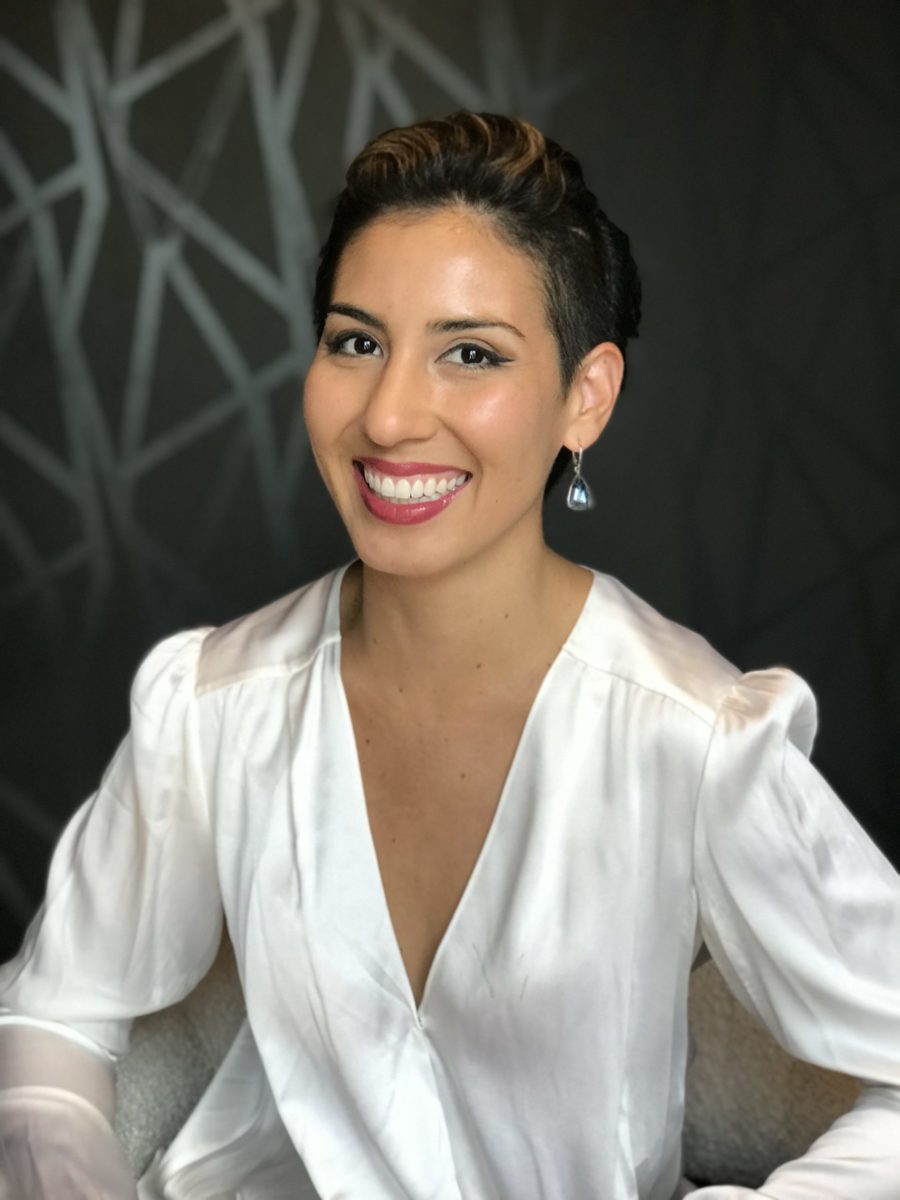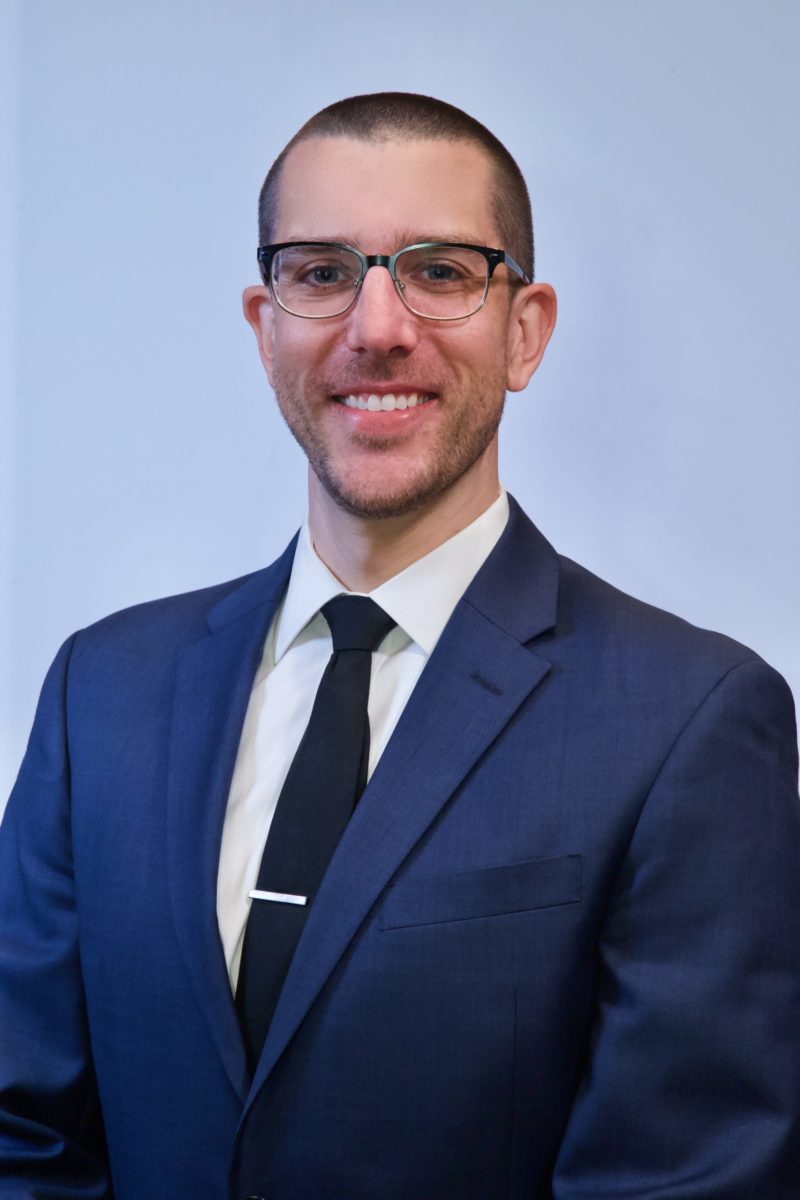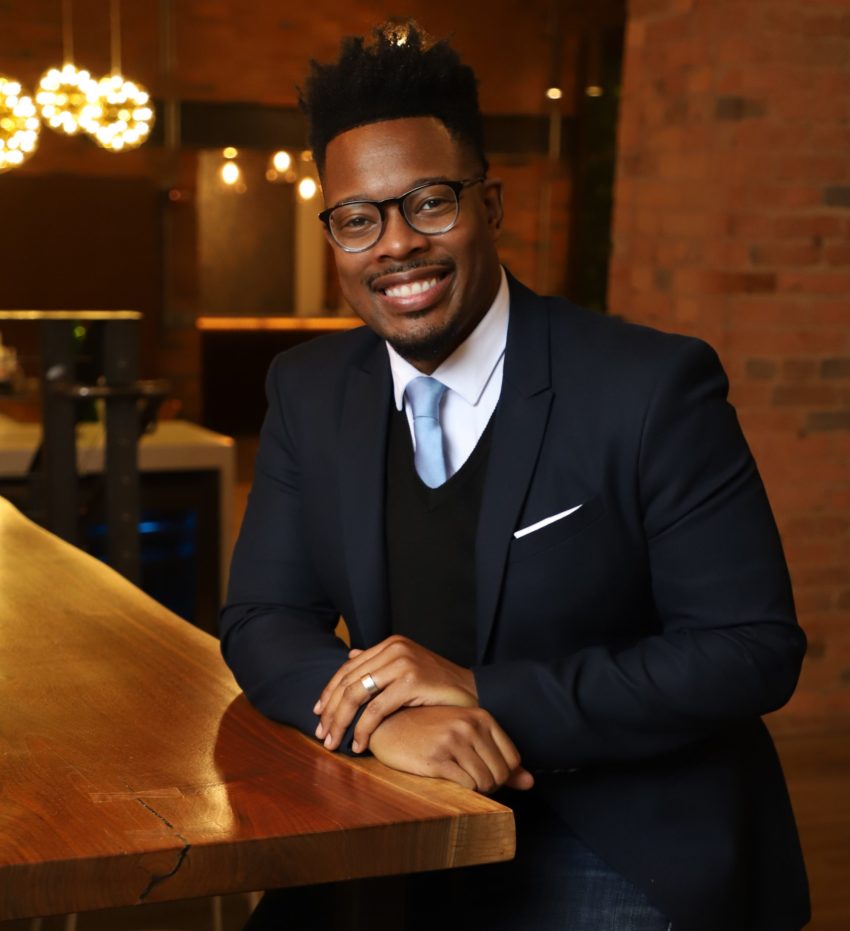“No man is an island entire of itself,” the poet John Donne once said.
This point ultimately underscores Evolution of a Tech Scene Month, May’s editorial calendar theme at Technical.ly, and its central concept of a single company enabling multiple other companies through its success. In other words, nothing happens in a vacuum and every successful venture can be considered fruit from a tree planted years ago.
Moreover, each successful entrepreneur, technologist and engineer benefited from some help along the way. With this in mind, we asked founders, professionals and stakeholders throughout Baltimore’s tech ecosystem: On whose shoulders do you stand? Who do you feel paved or helped pave the way to where you are now? What was the most helpful thing an old boss did for you?
Samantha Musgrave, director of Project Waves
I’m standing on a lot of shoulders — it’s hard to pick just one set! Without being cliché, my mother paved the way for me to work in a male-dominated industry that isn’t always welcoming or supportive of women. My mom’s work as an attorney and nonprofit leader taught me the value of listening, learning and advocating for systemic changes that can positively alter the course of lives.
Back in 2010, my first boss in the nonprofit sector hired me for an entry-level tech support job. During the hiring process, she insisted that I should have the option to work remotely and helped me to negotiate my first contract to include ample telework opportunities. At the time, I had no idea how important this would be, but it has been invaluable throughout my career and personal life.
Luke Cooper, founder of Latimer Ventures and Fixt

Loida Lewis, wife to the late Reginald Lewis. From dinner at my place to quick text exchanges, I rely on her counsel and spiritual strength. Reginald Lewis was a Black business icon and someone that inspired many of the actions that I’ve taken in my career. To be a woman doing the things that she was doing at the time she was doing them was also incredible. After her husband died, she ran the billion-dollar TLC Beatrice Food Company. Her unique perspective as the wife, strategic thought partner and ally to Reginald helps me understand what it takes to operate at that altitude.
Another mentor I’d like to call out is James Fielder. He is Maryland‘s secretary of state for higher education and has been a close friend and mentor of mine for the past 15 years. When the governor appointed me to the TEDCO board, I knew I wanted to do big things, and the appointment ultimately led to me and the board creating the Builder Fund, an investment pool dedicated to funding underrepresented founders. We did this in 2017 well before George Floyd. Jim has been an economic development leader and was part of the team that introduced legislation to create TEDCO. His mentorship helped me navigate the basic politics of how to make a statewide impact for underserved portions of my community in the face of resistance.
Once, an old boss brought me into his office to discuss a complex legal matter. I told him that the two issues we were discussing were ”discrete.” He expressed disappointment and then proceeded to turn around to pull a dictionary from behind his desk to challenge me that I was using the word improperly. He of course was thinking of “discreet.” When he turned back around and saw that I was correct in my use of the word and spelling, he turned beet red. What he gave me at that moment was the knowledge that acting courageously in the face of micro- and macro-aggression was necessary, and my law degree and all the precise words that made up that education could be catalyzed for that purpose.
Juliana Buonanno, TechSlice founder

A little bit of kindness from many went a long way. Because of my experience with mentors, I think they are essential and I wouldn’t be where I am today without them.
Personally, The Hansens. A family that took me in and put a roof over my head, no questions asked. They encouraged me to stay in school and were there for me during my foundational years. Maybe they didn’t know anything about tech, but they certainly encouraged me and believed that I could achieve anything. Sometimes, just having someone believe in you helps you when you don’t believe in yourself.
Professionally, three people from a former client of mine (Connections Education). One who invited me to scrum meetings and explained basic software and agile concepts to me — John Marhefka, software manager — and Derek Frempong, technical manager, who taught me about UX, programming, and leadership. Then I ran into Chris Uehlinger, software engineer, at a NodeSchool code meetup. [He] spent countless hours talking to me about code and volunteering his time to teach me over and over again. All three of them were so welcoming, approachable and took the time out of their busy schedules to patiently answer any questions I had.
My former boss, Rosie, at my first recruiting job in college. She held me accountable to everything I said I was going to do and pushed me to a higher standard of expectation. She instilled that there is no room for excuses (she had an Army background if that isn’t obvious at this point). She forced me to stay organized and helped me update my resume when I was moving up north. Rather than cut me out when she knew I was moving/moving on, she helped coach me and set me up for success in my future interviewing opportunities. No other boss would do that. Woman to woman: If you ever read this, Rosie, I appreciate that more than you know. She also told me the reason she hired me over other candidates before I left — she said it was because I was honest and gave her a “real answer” during an interview question, versus what she wanted to hear. That has always stuck with me and has influenced the way I’ve operated over my entire career.
The rest of my bosses generally sucked and showed me everything I don’t want to be as a leader. So, I guess I should thank them for that.
Sherrod Davis, EcoMap Technologies cofounder and COO
I feel like I’m standing on the shoulders of Jamie McDonald, exited founder, now an ecosystem builder running UpSurge to put Baltimore on the map. Also, Jeff Cherry, an investor who is focused on conscious capitalism and how we can build technology to make society better.
The most helpful thing an old boss (Nick Culbertson) did for me was allowing me to spend lots of time working within the Baltimore ecosystem, on Baltimore Tracks, making connections within Baltimore, etc. It didn’t have to do specifically with Healthcare Compliance Analytics, but it helped to cement Protenus‘s reputation regionally and allowed me to expand my network while supporting Baltimore.
Meghan McCorkell, marketing and communications director for Enoch Pratt Free Library
I feel like I stand on the shoulders of so many female leaders who’ve come before me. When I first started in TV journalism, I remember being told that you had to cut your hair short, dress in suits — essentially, erase your femininity. Over the years, we started seeing female network news anchors sitting at the evening news desk, and that really changed the game for women in the industry. I was lucky to be led by many strong, smart, female news directors in my time and I learned from each one of them. Now, in library marketing, I look to my contemporaries that run strong libraries across the country, both male and female.
One piece of advice that I picked up from a supervisor somewhere is that everyone is going to show you the “right” way to do something. But there is no right way or wrong way. Pay attention to how people work. Take what you like and what works for you and incorporate it, and leave the rest. Do that with every mentor you come across and you’ll find a way to do things that is uniquely yours. Whenever I’m working with someone who is developing their career now, I always tell them: I will show you how I do things, take what you like, and don’t worry about the rest.
Justin Elszasz, Baltimore City’s chief data officer

First and foremost, my family. My wife is a physician with an intense career of her own and we’re raising two very young children. It’s been tough for us both during the pandemic and I took my current role in the middle of it. She’s an incredible partner and I don’t deserve her. I’m also incredibly lucky to have had two supportive parents who worked really hard to support three children and were always there to back me up if something wasn’t working out. My dad is an auto mechanic and my mom stayed at home with us until I was in seventh grade, and then worked for the county we grew up in. They had to work hard to raise three kids. They showed me work ethic, humility, integrity, service, and curiosity. My mom is a great writer and taught me the importance of clear communication — something I think set me apart from my peers in STEM. Not everyone is lucky enough to have family like this and I try not to take it for granted.
In my current role: all the data, design, smart city and innovation experts in local government who are demonstrating that new approaches can and do work. The great thing about the public sector is the willingness to share ideas and the nitty-gritty details of how to do something. This isn’t always possible in the private sector, where IP is the name of the game. I can cold call folks from across the country and they’re often willing to share exactly how they did something. We’re constantly stealing ideas from other cities.
And so, so many others.
They might not realize it, but I can recall a handful of instances where a random comment or discussion made me realize that there might be other uses for my particular combo of skills. During my engineering co-op in undergraduate, I can recall someone commenting that I’d be good in management one day. I was vehemently closed to that idea at the time. I wanted to just do the technical work (I was in aerospace at the time so this looked like heat transfer and fluid dynamics, mostly), but years later, I see he recognized something. Same with Dr. Patricia Culligan in graduate school who, when I was considering leaving my PhD program, asked if I’d considered the executive MBA program. Again, I wasn’t interested at the time, but the compilation of these comments along the way made me realize that maybe I had a combo of competencies that went beyond just technical work.
My supervisor during my engineering co-op at Parker Hannifin’s gas turbine fuel systems division, Ravi Gudipati, and countless design, test and manufacturing engineers there taught me so much, and were so giving with their time and patience. Ravi threw me straight into some work that the company was counting on. Not just side projects for interns. That kind of trust and responsibility gave me a lot of confidence that stayed with me through the years.
Justin Spencer and Ken Seiden, from the data science group in the energy practice at Guidehouse (formerly Navigant) immediately put me into a management role when I moved over from the policy group and I felt totally supported and trusted. Also, I’m pretty sure Dan Hymowitz, director of the Mayor’s Office of Performance & Innovation, and Sunny Schnitzer, former deputy mayor for public safety, and unknown others vouched for me when the chief data officer role was on the table, so I owe them a huge debt of gratitude!
Greg Dvorken, founder of Return Solutions Inc.
My parents were great mentors, encouraging me to take risks and always be curious. I’ve also learned a lot from each work experience I’ve had during my career, [in terms of] both what to do and what not to do, watching my ever-evolving stew of experience and knowledge get better as the ingredients became higher quality over time. Then, it’s about having the guts to apply it. My best bosses gave me the space to do what I needed to do to grow, including having my back during some epic failures.
Terry Bazemore Jr., COO of Ey3 Technologies

There are so many people’s shoulders I’m standing on but, to be specific, I would say my family. My parents and grandparents really demonstrated so many characteristics of being successful. From work ethic to family life balance to education, my family taught and demonstrated in action how to find and define success for yourself.
Who paved the way? I would have to say historically in the tech industry/community, for me, it’s Katherine Johnson and George Washington Carver, two brilliant minds in mathematics and science, respectively. They were able to do so many amazing things to advance the scientific community while fighting through so many societal adversities. Their bravery and passion for science continued to tear down stigmas and barriers for African Americans in the tech community, of which I am a beneficiary.
Before my wife and I decided to start Ey3, I worked for a company called CNF Technologies. The day I met my “old bosses,” Steve Barish and Steve Lewis, I explained to them that I planned to start my own company at some point in the near future. They told me when the time came that they would support me, and when the time came, they kept their promise. Their support allowed me to have a position on the contract that would help build Ey3’s past performance for our fledgling company. I would be remiss to not mention Tracie Partee, who was my direct lead at CNF and helped mentor me in contract programmatics to ensure I could do it for myself when on my own.







